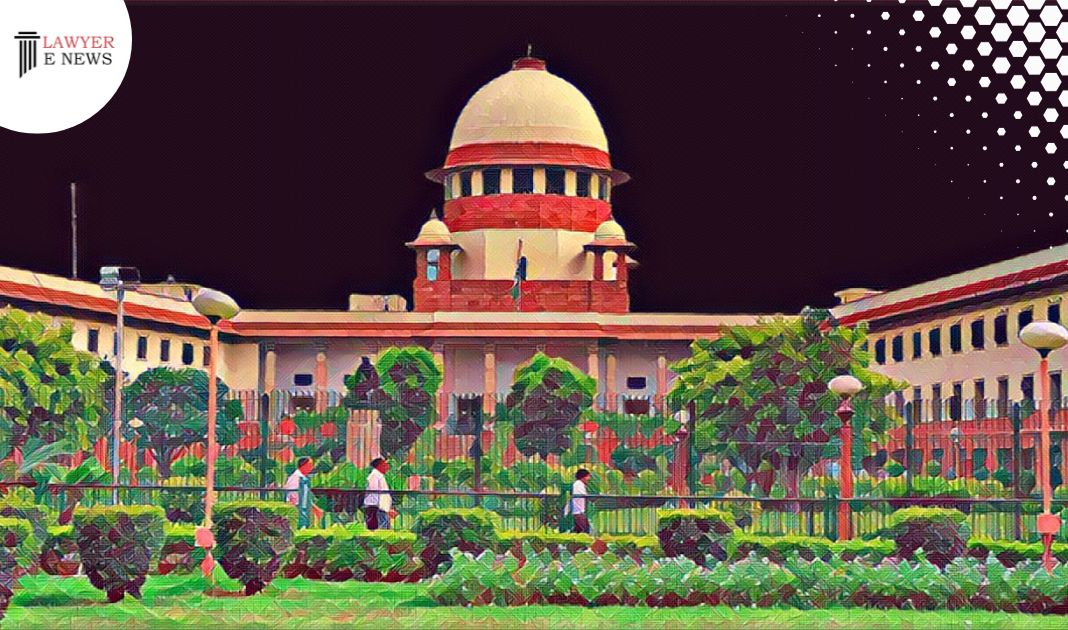-
by sayum
14 February 2026 2:22 PM



The Supreme Court confirms the necessity of obtaining prior sanction before prosecuting public servants under the Prevention of Corruption Act, upholding the High Court's decision.
In a significant ruling, the Supreme Court of India has reaffirmed the mandatory requirement of obtaining prior sanction for prosecuting public servants under the Prevention of Corruption Act. The bench, comprising Justices Sudhanshu Dhulia and Prasanna B. Varale, dismissed the appeal by the State of Punjab, thereby upholding the High Court's decision to set aside the trial court's summoning order under Section 319 of the CrPC in the absence of the necessary sanction.
The case originated from an FIR lodged on April 25, 2016, under Sections 7 and 13(2) of the Prevention of Corruption Act against Dr. Partap Singh Verka and a co-accused, Vikas, a ward attendant at Guru Nanak Hospital. The complainant, Gurwinder Singh, alleged that Dr. Verka demanded a bribe of ₹10,000 for treating his imprisoned brother and further demanded another ₹10,000 to continue the treatment. Vikas was caught red-handed by the Vigilance Bureau while receiving a bribe from the complainant, leading to the arrest of Dr. Verka on the same day. Despite initial bail, the trial proceeded against Vikas alone, as Dr. Verka was not named in the chargesheet. However, during the trial, Gurwinder Singh's testimony prompted the State to file an application under Section 319 of the CrPC to summon Dr. Verka as an accused, which was granted by the trial court but later quashed by the High Court due to the lack of prior sanction under Section 19 of the Prevention of Corruption Act.
The Supreme Court emphasized the inviolability of Section 19 of the Prevention of Corruption Act, which stipulates the necessity of prior sanction before taking cognizance of offences under Sections 7, 11, 13, and 15 committed by public servants. The Court cited previous judgments to reinforce that this requirement cannot be bypassed, even when invoking Section 319 of the CrPC.
Justice Sudhanshu Dhulia, writing for the bench, underscored the hierarchical precedence of Section 19 of the P.C. Act over the general provisions of the CrPC, specifically Section 319. The Court reiterated that the sanction for prosecution must be obtained for the specific accused before a court can take cognizance of the offences. This interpretation was supported by precedents such as Dilawar Singh v. Parvinder Singh and Paul Varghese v. State of Kerala, which clarified that the mandate of prior sanction is absolute and essential for maintaining the procedural integrity of corruption cases.
In his judgment, Justice Dhulia stated, "The provisions of Section 19 of the Act will have an overriding effect over the general provisions contained in Section 190 or 319 CrPC. A Special Judge cannot summon another person under Section 319 CrPC without the prior sanction for prosecution from the appropriate authority." He further emphasized, "The mandate is clear and unambiguous that a court 'shall not' take cognizance without sanction. The same needs no further elaboration."
The Supreme Court's decision reinforces the procedural safeguards intended to prevent arbitrary prosecution of public servants and underscores the judiciary's commitment to upholding due process. This judgment is expected to have far-reaching implications for future cases under the Prevention of Corruption Act, reiterating the necessity of prior sanction as a prerequisite for prosecution. The ruling not only clarifies the legal position but also fortifies the framework for addressing corruption charges against public officials.
Date of Decision: July 8, 2024
State of Punjab v. Partap Singh Verka
